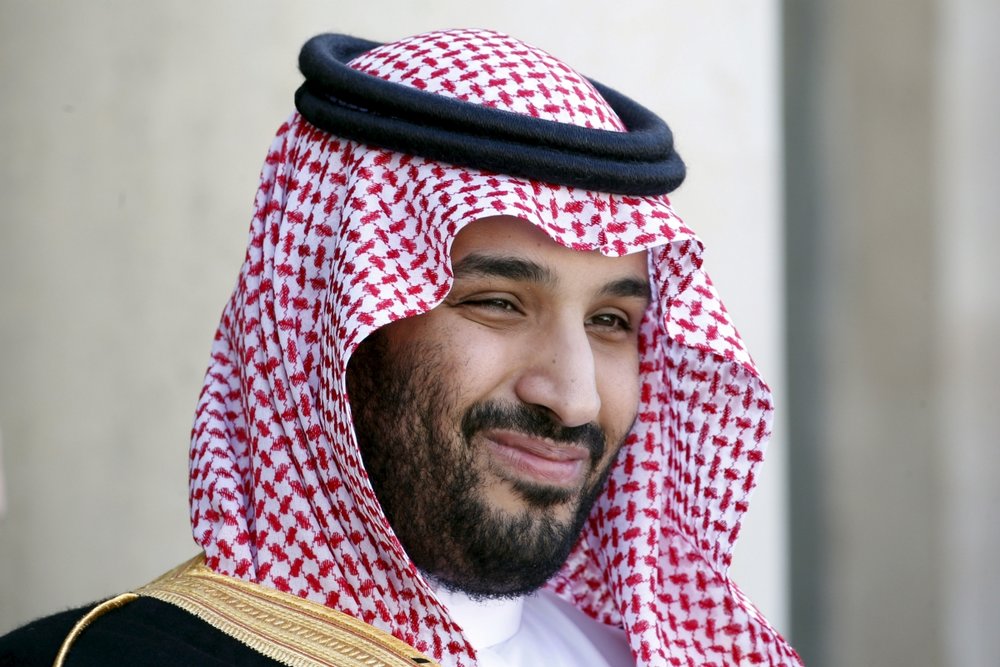Great Confession of the Young Prince!
An overview over Recent Remarks by Mohammed Bin Salman

TEHRAN _ Recently, Saudi Arabia's crown prince, Mohamed bin Salman, who prepares for the kingdom of the country, has made remarkable statements about the power of the Islamic Republic of Iran. The Crown Prince of Saudi Arabia recognized the state of governance of Saudi society as a reaction to the Islamic Revolution of Iran, whose former leaders did not know how to deal with it.
Mohammed bin Salman stated in an interview with the Guardian: “What happened in the last 30 years is not Saudi Arabia. What happened in the region in the last 30 years is not the Middle East. After the Iranian revolution in 1979, people wanted to copy this model in different countries, one of them is Saudi Arabia. We didn’t know how to deal with it. And the problem spread all over the world. Now is the time to get rid of it.”
Bin Salman added that the ultra-conservative state had been “not normal” for the past 30 years, blaming rigid doctrines that have governed society in a reaction to the Iranian revolution, which successive leaders “didn’t know how to deal with”.
Also, the Crown Prince of Saudi Arabia has called for universal support for reforms in his country. Regarding the recent remarks by Mohamed bin Salman, there are some points that need to be addressed:
First, the confession of Saudi Arabia's crown prince to Iran's power in the region is a fact that Riyadh has long refused to accept. The fact is that the principles of the Islamic Revolution of Iran are so firmly established that the owners of gold in Saudi Arabia could not stand against it, even with their oil dollars and with the support of powerful countries such as the United States and the Zionist regime.
Today, the Islamic Republic of Iran is more powerful than ever before in the region and has prevented the realization of the intentions of the United States and its allies. Today, Syria, Yemen, Bahrain and Iraq have become symbols of the defeat of Saudi Arabia and its western supporters. These victories have come from the beliefs and ideas that have crystallized through the Islamic Revolution in Iran.
The Saudi family have sought to dominate Western Asian equations from the outset, but this demand has not been met due to the dangerous thoughts of the Wahhabi scholars and the general approach of Riyadh to inject violence in the region. "Regional hegemony" is a demand that the Saudis sought based on two factors of oil and the revenues stemming from the presence of the Haj pilgrims.
Therefore, apart from the Saudi attachment to the United States and the Zionist regime, the Saudis are trying to treat the countries of the region throughout their determination. The Saudis strengthened this sense of "superiority" after the decline of outstanding characters of the Arab world, including Jamal Abdel Nasser, Malik Hossein and Yasser Arafat. Mohammed bin Salman has also fueled this false sense, beyond the current realities in the region and the international system along with the collapse of the governing structure of the Saudi court, will not leave any room for his success. An overview of what is happening in the West Asia region expresses the facts in this regard: that Saudi authorities have failed not only in the field of discourse, but also in the military sphere in the region.
For example, what is happening in Yemen today is indicative of the triumph of the Islamic Revolution discourse against the Saudis' blasphemous discourse. In Yemen, the aggression of Saudi family and their allies against the oppressed and defenseless people, whose only weapon is faith and belief in the independence of their country, has been lasting for two and a half years now.
Saudi Arabia thought that it can take the full control of Sana'a and Aden in ten days and topple the popular system in Yemen. But the result of the Saudis attack was nothing but the heavy defeat of Riyadh and the destruction of a large number of aggressive forces and, most importantly, the survival of the Yemeni revolution. Sanaa and Aden and Marib have become the symbols of the defeat of the Saudis in Yemen.
The Saudi family has not been able to take any steps to confiscate the revolution of the Yemeni people and destroy this massive popular movement, even by using al-Qaeda. Beyond that, the support of the United States, Germany, Britain and France from Saudi Arabia has also failed to save Riyadh from the plunder of Yemen. We see the same thing in Syria. Since 2011, the Saudis have been attempting to overthrow the Syrian government and turning the country into another hell in the region. They did all they could to strengthen ISIL and the Al-Nusra Front and other groups of the Takfiri militants, but in return they faced a strong barrier called the Resistance Front that stood against all their wishes and attempts.
The fact is that the Saudis neither had the power of discourse in the region nor had they something to say about the strong discourse of the Islamic Republic of Iran. Currently, Saudi officials have tried to face another mask and persuade the public to cherish the word "reform in Saudi Arabia".
Regardless of the cultural and social barriers existing to the reforms in Saudi Arabia, it should be noted that the reforms made by Bin Salman and his entourage are suppressive reforms.
In other words, these reforms are not fundamentally subjective, and are merely moderating certain behaviors (not approaches). Bin Salman, on the other hand, seeks to regain public support for his presence in power by relying on these apparent reforms. Therefore, the apparently social reforms of Bin Salman have a completely political nature. As soon as he reaches power and stabilizes his position, he may retreat from such superstructure and apparent reforms.
Leave a Comment